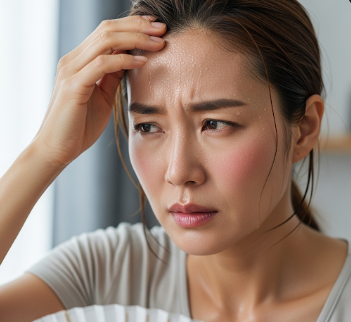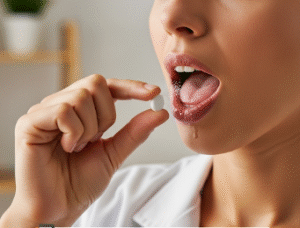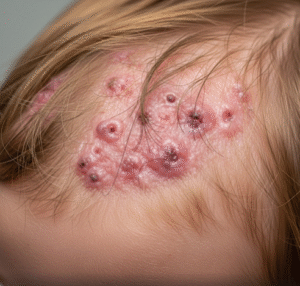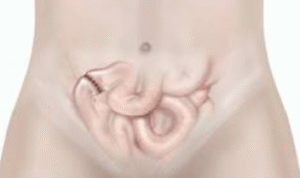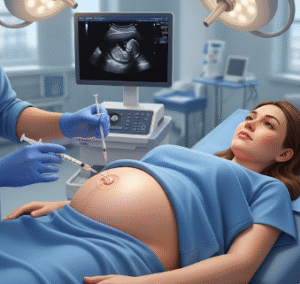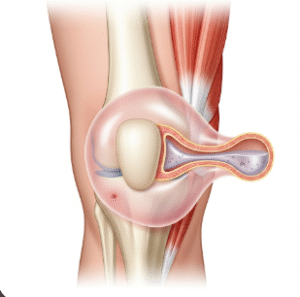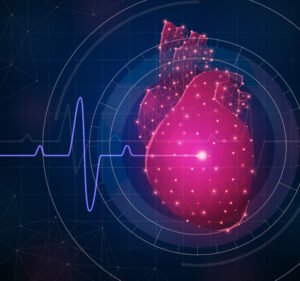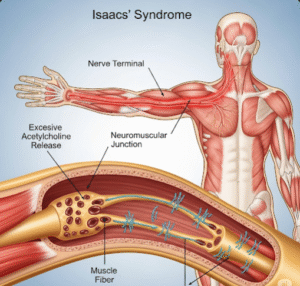Overview
Hot flashes are sudden sensations of heat that typically affect the face, neck, and chest, often accompanied by flushing, sweating, and palpitations. They are a common symptom of hormonal changes, particularly during menopause, but can also occur in men or due to other medical conditions.
While hot flashes are usually benign, they can disrupt sleep, daily activities, and quality of life. In South Korea, endocrinology and women’s health clinics provide diagnostic evaluation, hormonal assessment, and individualized treatment options for hot flashes.
Key Facts
🟢 ➤ Hot flashes are sudden feelings of warmth, often accompanied by redness of the skin and sweating.
🟢 ➤ Most commonly associated with menopause but can also occur due to medications, endocrine disorders, or other health conditions.
🟢 ➤ Symptoms may include palpitations, anxiety, and night sweats.
🟢 ➤ Frequency and severity vary, from mild episodes to severe, disruptive events several times a day.
🟢 ➤ Treatment focuses on relieving symptoms, addressing underlying causes, and improving quality of life.
🟢 **➤ South Korean clinics offer both hormonal and non-hormonal therapies, lifestyle advice, and integrative approaches.
What is a Hot Flash?
A hot flash is a sudden, temporary feeling of intense heat that typically begins in the upper body and can spread downward.
Key points:
➤ Often accompanied by sweating, palpitations, and flushing.
➤ Episodes usually last 2 to 10 minutes, though some may persist longer.
➤ Hot flashes may occur during the day or night (night sweats), interfering with sleep.
➤ Triggers can include stress, caffeine, alcohol, hot weather, or spicy foods.
➤ In women, hot flashes are primarily related to decreasing estrogen levels during perimenopause and menopause.
Symptoms Related to Hot Flashes
Hot flashes may present with a combination of physical and emotional symptoms:
🟢 ➤ Sudden warmth or heat sensation, often in the face, neck, and chest.
🟢 ➤ Flushing or redness of the skin.
🟢 ➤ Profuse sweating, sometimes drenching clothing or bedding.
🟢 ➤ Palpitations, rapid heartbeat, or anxiety.
🟢 ➤ Chills or shivering after the episode passes.
🟢 ➤ Sleep disturbances if hot flashes occur at night (night sweats).
🟢 ➤ Irritability, fatigue, or difficulty concentrating due to recurrent episodes.
Causes / Possible Causes
Hot flashes occur due to hormonal changes, medications, or medical conditions:
Menopause and Perimenopause
➤ Declining estrogen levels affect thermoregulatory centers in the hypothalamus, leading to sudden heat sensations.
Medical Conditions
➤ Thyroid disorders (hyperthyroidism)
➤ Diabetes or hypoglycemia
➤ Infections or malignancies in rare cases
Medications
➤ Certain hormone therapies, antidepressants, or chemotherapy drugs can trigger hot flashes.
Lifestyle and Environmental Factors
➤ Spicy foods, caffeine, alcohol, stress, and hot weather may worsen symptoms.
Male Hot Flashes
➤ Men undergoing androgen deprivation therapy for prostate cancer may also experience hot flashes due to hormonal changes.
When Should I See a Doctor?
Consult a healthcare provider if:
🟢 ➤ Hot flashes are severe, frequent, or disrupt sleep and daily activities.
🟢 ➤ They are accompanied by chest pain, shortness of breath, or other concerning symptoms.
🟢 ➤ They begin suddenly in men or premenopausal women without an obvious cause.
🟢 ➤ There is a history of medications or underlying medical conditions that could trigger hot flashes.
Early evaluation ensures appropriate diagnosis, exclusion of serious causes, and effective management.
Care and Treatment
Treatment of hot flashes focuses on symptom relief, lifestyle modifications, and medical therapy when needed:
Lifestyle and Home Measures
➤ Dress in lightweight, breathable clothing.
➤ Keep the bedroom cool at night to reduce night sweats.
➤ Avoid triggers such as caffeine, alcohol, and spicy foods.
➤ Practice stress-reduction techniques, such as meditation or yoga.
Medical Treatment
➤ Hormone Replacement Therapy (HRT) – effective in reducing hot flashes in menopausal women.
➤ Non-hormonal medications – certain antidepressants, gabapentin, or clonidine may relieve symptoms.
➤ Treatment for underlying conditions – thyroid disorders, infections, or other medical causes should be addressed.
Alternative and Integrative Therapies
➤ Acupuncture, herbal supplements, and relaxation techniques may provide additional relief for some patients.
Advanced Care in Korea
➤ Clinics specializing in women’s health and endocrinology offer comprehensive evaluation, hormonal testing, and personalized treatment plans.
➤ Support programs include sleep management, lifestyle counseling, and patient education.
Highlights (Clean Green Arrow Version)
🟢 ➤ Hot flashes are sudden sensations of heat, often with sweating, flushing, and palpitations.
🟢 ➤ Common causes: menopause, perimenopause, hormonal changes, medications, thyroid disorders, and other medical conditions.
🟢 ➤ Symptoms: warmth, redness, sweating, palpitations, chills, sleep disturbances, and irritability.
🟢 ➤ Lifestyle changes, stress management, and avoidance of triggers help reduce episodes.
🟢 ➤ Medical treatments include hormone replacement therapy, non-hormonal medications, and therapy for underlying causes.
🟢 ➤ South Korea provides advanced evaluation, personalized treatment, and integrative support for managing hot flashes.

